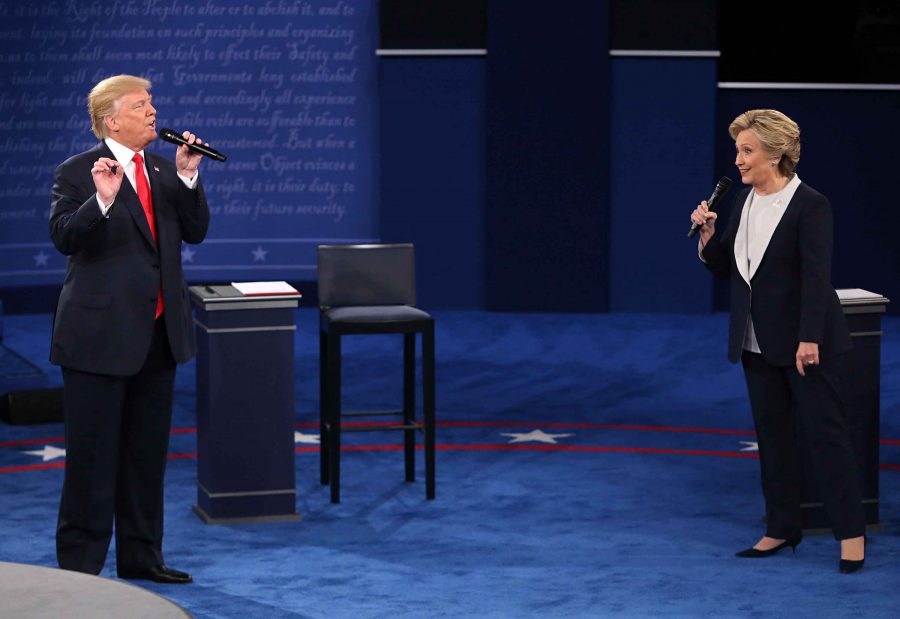It’s official: This election is stressing everyone out
Donald Trump and Hillary Clinton on stage during the second debate between the Republican and Democratic presidential candidates on Sunday, Oct. 9, 2016 at Washington University in St. Louis, Mo. (Christian Gooden/St. Louis Post-Dispatch/TNS)
October 14, 2016
NEW YORK — There’s good news for Americans who find themselves waking up in a cold sweat at 3 a.m. to check the latest polls: You are not alone.
More than half of you — on both sides of the aisle — say the 2016 election is a major source of stress, according to a new survey from the American Psychological Association.
“Historically, work, money and the economy are the top three,” said clinical psychologist Lynn Bufka, part of the APA’s Stress in America team, which has been conducting surveys of what freaks us out the most for 10 years. “Now it’s right up there.”
Advertisement
In addition to the overall pervasiveness of news about the presidential election — non-stop coverage for more than a year now — Bufka cites several potential reasons Americans are more worried this year. To start, there’s the tenor of the campaigns, which are arguably more negative and accusatory than any other in modern history.
“In general,” she said, “humans like harmony.”
Not a lot of that going around this year.
People may also be stressed by these candidates in particular — who they are and what they stand for. And of course, Americans are worried about the outcome.
The survey was conducted online by Harris Poll in August among 3,511 adults aged 18 and up living in the U.S. Data were weighted to accurately reflect the population.
While social media usage correlates with higher stress levels, the American you’re least likely to find posting on Facebook — those age 71 and up — are also the ones reporting the most anxiety. Usually, Bufka said, their generation, called the “silent” or “greatest” generation by some, reports the lowest levels of stress.
“They’ve weathered a lot, they have good perspective” she said. But in this case, the opposite seems to be true. “We’re wondering if thinking about the implications on their children and grandchildren might be the source of the stress,” she said.
Advertisement*
Bufka and the APA say it’s important for people to take steps to manage this additional agita: Don’t engage in conversations that will lead to more conflict; turn off your phone; and read only what you need to stay informed. Then on Nov. 8, get out and vote.
There is some precedent for this seemingly historic election, however, said Drew Westen, a professor of psychology at Emory University and author of The Political Brain: The Role of Emotion in Deciding the Fate of the Nation.
“The last candidate who created this anxiety was probably Barry Goldwater,” he said, obliquely referring to Republican presidential candidate Donald Trump by comparison. “His ideology was so far out of the mainstream … not surprisingly, (President Lyndon B.) Johnson won in a landslide.”
___
(c) 2016 Bloomberg News
Visit Bloomberg News at www.bloomberg.com
Distributed by Tribune Content Agency, LLC.
Advertisement









